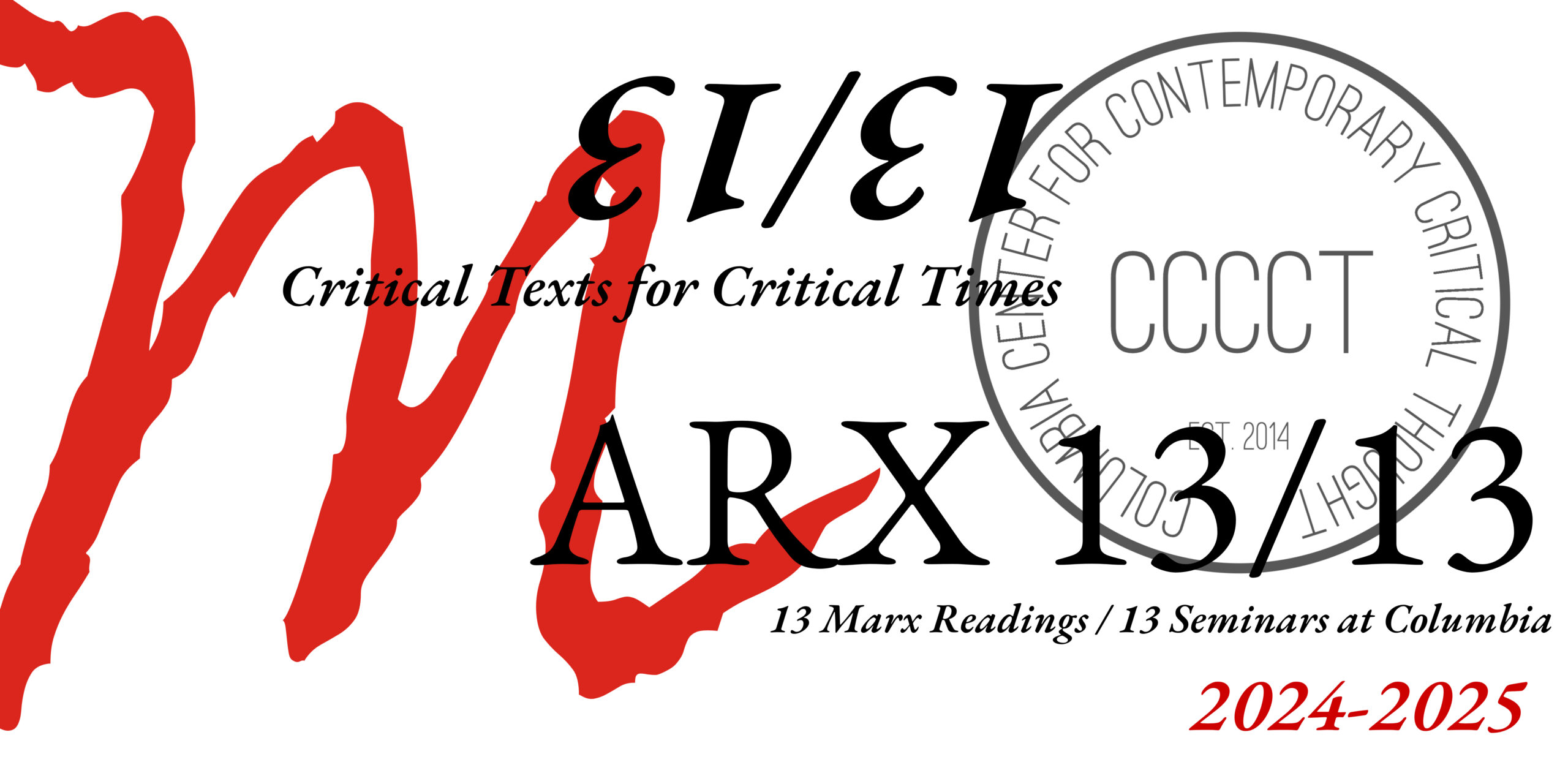By Bernard E. Harcourt
The interview with Matteo Polleri on the relationship between Marx and Foucault left me with several important insights.
What I find most productive in the confrontation between Marx and Foucault is to read the Foucault of the early 1970s (Penal Theories and Institutions, Punitive Society to Discipline and Punish) alongside the Marx of 1849-51 (Class Struggles in France and The Eighteenth Brumaire) in order to contrast their microphysics of power in the context of social conflict and class struggle. While Marx stayed focused on the nucleus of class struggle, Foucault enlarged his microphysics into other social struggles like sexuality, punishment, and madness. I view this as a matter of concentric circles, as I suggested in the interview. In moving into those other spaces, one can often lose the connection to political economy or what Marx had in mind with the idea of infrastructure. But one need not. In other words, one can retain that attention and connection. One just needs to make the effort to do it more explicitly.
Reading Foucault with Marx allows us to enrich the questions of subjectivation which were so important in the Marx of 1844 but also of 1857. It is crucial to not let oneself fall victim to simplistic or reductionist readings of either Marx or Foucault. Even with regard to topics like revolution and insurrection, there are different periods for each of these authors. At important junctures of his life, Foucault was captivated by questions of de-subjectification and transformation of the self, and those questions are central to insurrection. Foucault was perhaps less explicit about analyzing the “present” in our present struggles and always took more of a historical approach than Marx. To analyze 1969, Foucault studied 1639 and the rebellion of the Nu-pieds. Marx, on the other hand, stayed focused on the present, dissecting the ongoing class struggles in France as they were taking place before his very eyes.
I have come to believe that it is crucial to deal with the present in the present moment. But today it requires concentric circles of race, gender, sexuality, migration, and more. Reading Marx and Foucault in confrontation enriches both—and our own analyses. Of that, I have no doubt.
